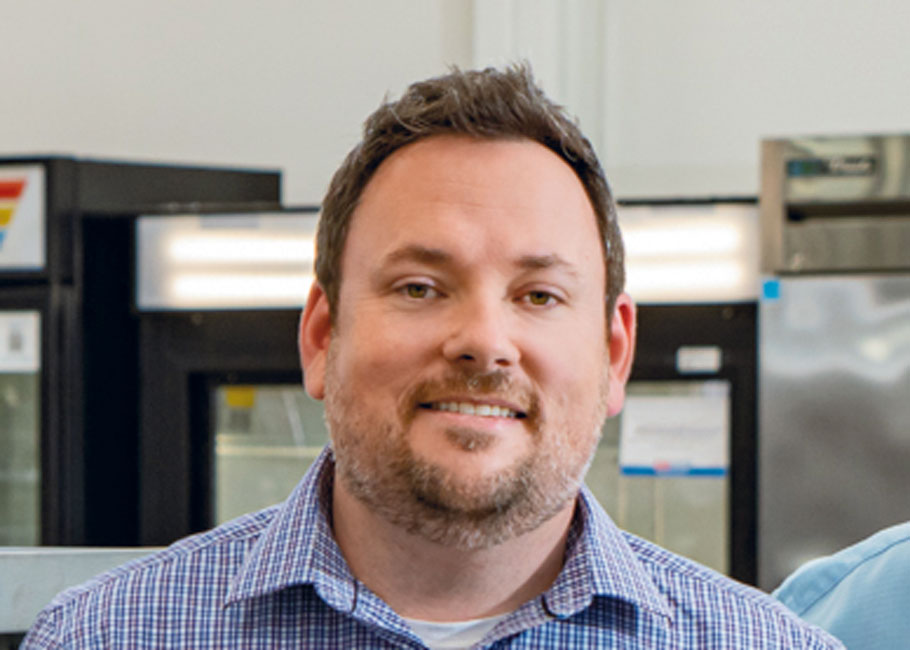Within the competitive climate at today’s colleges and universities, the quality of dining services can be a competitive advantage. Prospective students take food into consideration today when making college decisions. “For some prospective students, the dining experience can be a deal breaker when selecting an alma mater,” according to CollegeRank.
Labor, labor, labor. It’s all people seem to talk about lately as we move through the next stages of the pandemic and its aftermath. That’s certainly the case for Cini Little’s Kip Serfozo, FCSI, LEED AP, WELL AP, who says every one of his clients has brought up labor shortages as the No. 1 issue of concern.
There is a lot to be said for the concept of co-branding in the restaurant business. With little effort, it is easy to see how complementary operations can bolster one another and maximize the precious labor and real estate expenses that figure so heavily in the bottom-line success or failure of any venture.
I’m a big believer in awards and award ceremonies when they are done right. One of the hardest parts of the past two years, as we have collectively struggled to cope with the changes imposed upon us by COVID-19, has been finding a way to appropriately honor our own FE&S industry award winners. Normal award ceremonies have been impossible to pull off.
I began my career as a professional investor studying hundreds of businesses in many different industries. My biggest takeaway from this experience was that all great companies had at least one thing in common: They were aggressive adopters of technology. Their counterparts — the companies that ignored technology — suffered the consequences regardless of their leadership position.
Any dealer sales rep worth their salt has developed the ability to adapt to unexpected changes. In real life, orders don’t always come in on time, plans and circumstances around installations change, and sometimes the wider world imposes with unanticipated disruptions.
There’s been plenty of twists and turns since the COVID-19 pandemic first took the world by storm in early 2020, and few segments have felt the brunt of all this uncertainty more than foodservice.
Ghost kitchens — foodservice operations that prepare orders for off-premises dining only — and virtual brands were among the few foodservice business models that proved resilient to the pandemic’s negative economic effects.
For multiconcept operator FAT Brands, 2021 was an active year, one in which the company diversified its restaurant portfolio and expanded its reach through a series of acquisitions.
Like every other business, each facet of ours (healthcare foodservice) underwent radical changes with updated policies and practices as the pandemic stretched across the globe. It would be commonplace for one day’s updated policy to negate everything we put in place the day previous. The next day would also require recalculating and updating, feeding into a practice we called the pandemic pivot.
It’s a challenge for a privately held business to pass from one generation to the next. Even more so to get to the third generation. But that’s exactly what happened with Ace Mart Restaurant Supply, a San Antonio-based foodservice equipment and supplies dealer.
The past 18 months have been trying on all businesses. Foodservice and publishing have not been immune. Back when the pandemic first started everyone thought, or hoped is probably more like it, that this would be a short-term situation. And the mantra of many companies was to do what it took to weather the storm and emerge from this even stronger.
Here at Zoomba Group, we’ve taken a divide and conquer approach to our return to industry travel. Like all of you, we are trying to be mindful about where to go, who to see and for how long.
Over the past 20 years, Dan Rowe has built New Alexandria, Va.-based Fransmart into one of the largest restaurant franchise development firms in the world. His specialty? Finding the next big thing in emerging brands and shepherding them into the world of franchising. He’s sold more than 5,000 franchises worldwide and helped brands including QDOBA Mexican Grill, Five Guys Burgers and Fries, The Halal Guys and others grow from small, multiunit operations into powerhouse chains.
If you take a moment to check out the table of contents page of this issue you may notice the postal marking at the top of the page that indicates that this is volume 74, number 12 for this publication. That means that in January of 2022 we will be entering our 75th year of continuous publication.
The United States surpassed the milestone of 65% of eligible U.S. adults having received at least one vaccination as of mid-June, per the U.S. Center for Disease Control. And the broader goal of 70% of adults having at least one shot by Independence Day remains within reach as I write this.
If you missed the first two installments of our FED Lunch & Learn series, you may want to circle back and catch up by listening to the archived one-hour presentations at FEDThoughtLeadership.com, before the third and final installment on Nov. 9 at 1 p.m. CST. For the investment of your time, what you will gain is valuable insight from a variety of viewpoints on some of the most important issues facing the foodservice industry today.
Energy efficiency and sustainability issues continue to make fast inroads into foodservice. Right now, for many operators, reducing energy consumption and decarbonizing their kitchens is a choice. But that may not be the case for long.
I had the honor of serving our country for more than 32 years, including 4 years in active duty as a Marine and 28 years in the reserves as a Navy Seabee. During that time, I served multiple tours of duty, including my last one at Camp Fallujah in Iraq, back in 2008, where I turned 50 years old. My military experience definitely developed me into who I am today. It’s been the driving force for my life. It showed me who I was from the inside out. And that experience continues to profoundly influence my role as a foodservice designer and business owner.
For many restaurant guests, enjoying a glass of wine or even sharing a bottle with their dining companions is all part of the experience. Realizing this, many restaurant operators spend significant time and thought developing wine lists that match their menus. Equally important, though, is developing the infrastructure that supports such a program, including glassware, storage and more.


















